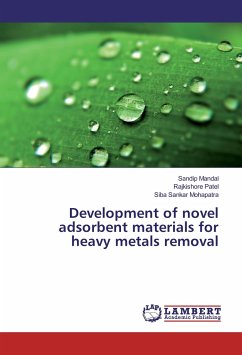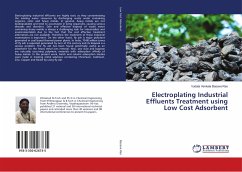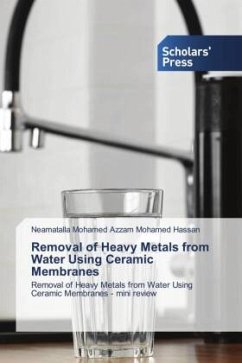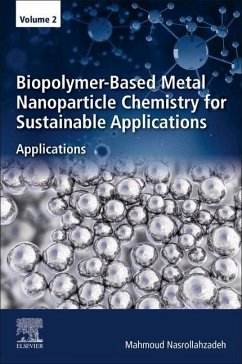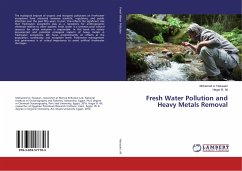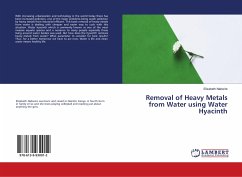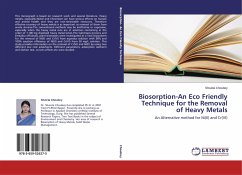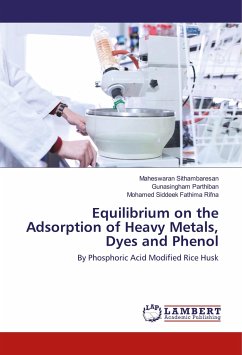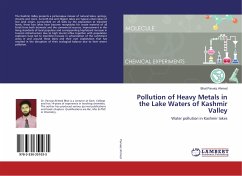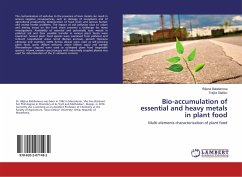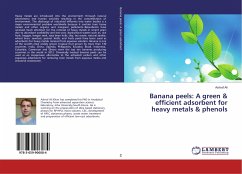
Banana peels: A green & efficient adsorbent for heavy metals & phenols
Versandkostenfrei!
Versandfertig in 6-10 Tagen
37,99 €
inkl. MwSt.

PAYBACK Punkte
19 °P sammeln!
Heavy metals are introduced into the environment through natural phenomena and human activities resulting in the contamination of environment. The discharge of industrial effluents into water bodies is a major environmental problem worldwide because it contain toxic heavy metals and other organic and inorganic pollutants. Biosorbents have received much attention for the removal of heavy metals in recent years due to abundant availability and low-cost. Agricultural wastes such as, rice husk, baggas, longan seed, soya bean hulls, clay, tea waste, natural zeolite, wheat bran, sawdust, peanut shel...
Heavy metals are introduced into the environment through natural phenomena and human activities resulting in the contamination of environment. The discharge of industrial effluents into water bodies is a major environmental problem worldwide because it contain toxic heavy metals and other organic and inorganic pollutants. Biosorbents have received much attention for the removal of heavy metals in recent years due to abundant availability and low-cost. Agricultural wastes such as, rice husk, baggas, longan seed, soya bean hulls, clay, tea waste, natural zeolite, wheat bran, sawdust, peanut shells, and fruits peels have been used as adsorbents for heavy metals removal from aqueous solution. Banana is one of the world's most widely grown tropical fruit grown by more than 130 countries. India, China, Uganda, Philippines, Ecuador, Brazil, Indonesia, Colombia, Cameroon and Ghana were the top ten bananas producing countries in the world in 2012. Chemically treated banana peels can be used as an inexpensive alternative to the activated carbon and other expansive adsorbents for removing toxic metals from aqueous media and industrial wastewater.



